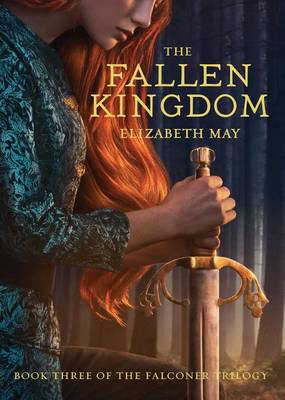Reviewed by ladygrey on
Like the second book, there's an unimpressive amount of repetition. And not just of what's occurred in previous books. We're reminded of something in a previous book (fair enough). And then again. And then by the way remember when that thing happened that I've already told you about twice? That level of repetition keeps it from feeling like a new story and instead it's retelling the old ones.
It's also telling old stories because a decent amount of the story is about different characters histories. It's new information that serves to cast the characters in a new light, but it isn't really a new story. It's getting to know the characters but nothing happens and nothing that we learn changes what happens in this story. It only changes how we perceive them. It's the sort of thing that isn't bad but is better suited to a second book where there's more time for that depth and those revelations to impact the story going forward in the third book.
There were new stories, sort of, in the tales that Aileana and Kiaran told of the faery king and human girl. I liked those, how they gave us more of his pov and revealed scenes with a full knowledge of that they were both thinking and feeling in them. It brought of bit of depth in otherwise concise moments and made for some of the most interesting scenes.
There's lots of abstract scenery descriptions which aren't that interesting to me. And a good deal of the story that is the characters in bed. Which I get, given their reunion. But it made the romance feel like it was consuming the plot and thereby pushing the story firmly out of YA territory and quite solidly into another genre.
Aithinne was more fun in the second book, I think. Though she's still pretty fun. And Kiaran wrestling with his darkness is pretty interesting. I wouldn't have minded more layers of that, especially after the room of mirrors. There wasn't enough aftermath of that because of how the story changed directions. Gavin seemed to pale after the first book, which was disappointing but I suppose in a romance story you don't want to eclipse anything else. And Derrick, was probably the most consistent and most fun character throughout the books. He was a vital bit of levity in a fairly dark story.
Still, I have to give it credit for ending well (or as well as possible I suppose). May spent so much of the series describing how pale and lifeless the realms became, and then thrust the characters into this world with their burdens that made even the renewed world hollow and empty. And I get why. Because our main pov character had sacrificed her heart. But then there's never a moment where May takes the time to describe the colors and life and vibrancy of what they've reclaimed. And there isn't really a sense of wonder in that final revelation, possibly because I totally saw it coming. It was good, but it wasn't enough.
Reading updates
- Started reading
- 2 December, 2018: Finished reading
- 2 December, 2018: Reviewed
